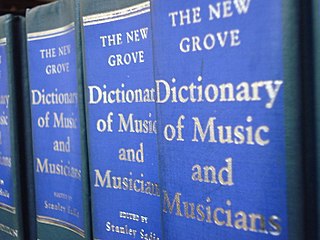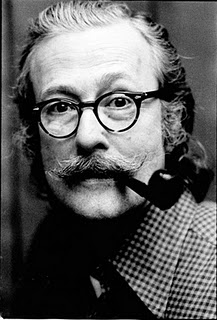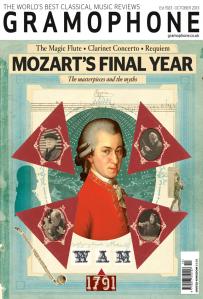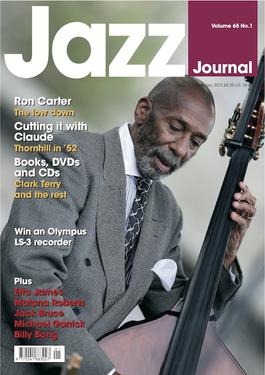
The New Grove Dictionary of Music and Musicians is an encyclopedic dictionary of music and musicians. Along with the German-language Die Musik in Geschichte und Gegenwart, it is one of the largest reference works on the history and theory of music. Earlier editions were published under the titles A Dictionary of Music and Musicians, and Grove's Dictionary of Music and Musicians; the work has gone through several editions since the 19th century and is widely used. In recent years it has been made available as an electronic resource called Grove Music Online, which is now an important part of Oxford Music Online.

Eugenio Montale was an Italian poet, prose writer, editor and translator, and recipient of the 1975 Nobel Prize in Literature.

Ralph Joseph Gleason was an American music critic and columnist. He contributed for many years to the San Francisco Chronicle, was a founding editor of Rolling Stone magazine, and cofounder of the Monterey Jazz Festival. A pioneering jazz and rock critic, he helped the San Francisco Chronicle transition into the rock era.

Michael Diamond Resnick was an American science fiction writer and editor. He won five Hugo awards and a Nebula award, and was the guest of honor at Chicon 7. He was the executive editor of the defunct magazine Jim Baen's Universe, and the creator and editor of Galaxy's Edge magazine.

Melody Maker was a British weekly music magazine, one of the world's earliest music weeklies; according to its publisher, IPC Media, the earliest. It was founded in 1926, largely as a magazine for dance band musicians, by Leicester-born composer, publisher Lawrence Wright; the first editor was Edgar Jackson. In January 2001, it was merged into "long-standing rival" New Musical Express.
High Fidelity — often abbreviated HiFi — was an American magazine that was published from April 1951 until July 1989 and was a source of information about high fidelity audio equipment, video equipment, audio recordings, and other aspects of the musical world, such as music history, biographies, and anecdotal stories by or about noted performers.

The Gentleman's Magazine was a monthly magazine founded in London, England, by Edward Cave in January 1731. It ran uninterrupted for almost 200 years, until 1922. It was the first to use the term magazine for a periodical. Samuel Johnson's first regular employment as a writer was with The Gentleman's Magazine.
Araki Yasusada was a non-existent Japanese poet, generally thought to be the creation of American literature professor Kent Johnson. The publication of Yasusada's poetry by major literary journals including the American Poetry Review, Grand Street and Conjunctions during the early 1990s created an embarrassing scandal for these publications.

The New York Times Magazine is an American Sunday magazine included with the Sunday edition of The New York Times. It features articles longer than those typically in the newspaper and has attracted many notable contributors. The magazine is noted for its photography, especially relating to fashion and style.

Gramophone is a magazine published monthly in London, devoted to classical music, particularly to reviews of recordings. It was founded in 1923 by the Scottish author Compton Mackenzie who continued to edit the magazine until 1961. It was acquired by Haymarket in 1999. In 2013 the Mark Allen Group became the publisher.

Boston Review is an American quarterly political and literary magazine. It publishes political, social, and historical analysis, literary and cultural criticism, book reviews, fiction, and poetry, both online and in print. Its signature form is a "forum", featuring a lead essay and several responses. Boston Review also publishes an imprint of books with MIT Press.
— W. H. Auden, from "September 1, 1939"
Rolling Stone Australia is the Australian edition of the United States' Rolling Stone magazine devoted to music, politics, and popular culture, published monthly. The Australian version of Rolling Stone was initially published in 1970 as a supplement in Revolution magazine published by Monash University student Phillip Frazer. It was launched as a fully fledged magazine in 1972 by Frazer and was the longest-surviving international edition of Rolling Stone until its last issue appeared in January 2018.

Horizon was a magazine published in the United States from 1958 to 1989. Originally published by American Heritage as a bi-monthly hardback, Horizon was subtitled A Magazine of the Arts. In 1978, Boone Inc. bought the magazine, which continued to cover the arts. Publication ceased in March 1989. Recently, American Heritage announced its intention to digitize essays from past issues.
Theodore Russell Weiss was an American poet, and literary magazine editor.
Classical Recordings Quarterly was a quarterly British magazine devoted to vintage recordings of classical music, across the range of instrumental recordings, chamber music, orchestral, vocal and opera.
The Encyclopedia of Recorded Sound is a reference work that, among other things, describes the history of sound recordings, from November 1877 when Edison developed the first model of a cylinder phonograph, and earlier, in 1857, when Léon Scott de Martinville invented the phonautograph. The first edition – Guy Anthony Marco, Phd (editor), and Frank Andrews (1920–2015) – was published in 1993. The second 2-volume edition, published in 2005, spans one hundred forty-seven years of recorded sound. Frank W. Hoffman, PhD, of Sam Houston State University is Editor and Howard William Ferstler of Florida State University is Technical Editor.
The Music Trades is a 133-year-old American trade magazine that covers a broad spectrum of music and music commerce, domestically and abroad. Founded in New York City in 1890, it has been based in Englewood, New Jersey, since the mid-1970s. The Music Trades is one of the oldest continuously published trade publications in the world. The April 2024 issue — Vol. 172, No. 3 — is about the three thousand one hundred and thirty-second issue. A controlling ownership over the last 94 years — seventy-one percent of the publication's total age — has been held by three generations of the Majeski family; few publications have been as long closely held by a single family.
Opus was an American magazine that featured critical reviews of classical music recordings. Based in Harrisburg, Pennsylvania, the magazine ran bimonthly from November/December 1984 to March/April 1988, publishing 21 issues. James R. Oestreich was its editor-in-chief. Historical Times, Inc., of Harrisburg was its owner. Warren Bertram Syer (1923–2007), who had published High Fidelity for 30 years, was then the president of Historical Times.

Jazz Journal is a British jazz magazine established in 1946 by Sinclair Traill (1904–1981). It was first published in London under the title Pick Up, which Traill founded as a locus for serious jazz criticism in Britain. In May 1948, Traill, using his own money, relaunched it as Jazz Journal. Traill, for the rest of his life, served as its editor-in-chief. Jazz Journal is Britain's longest published jazz magazine.











